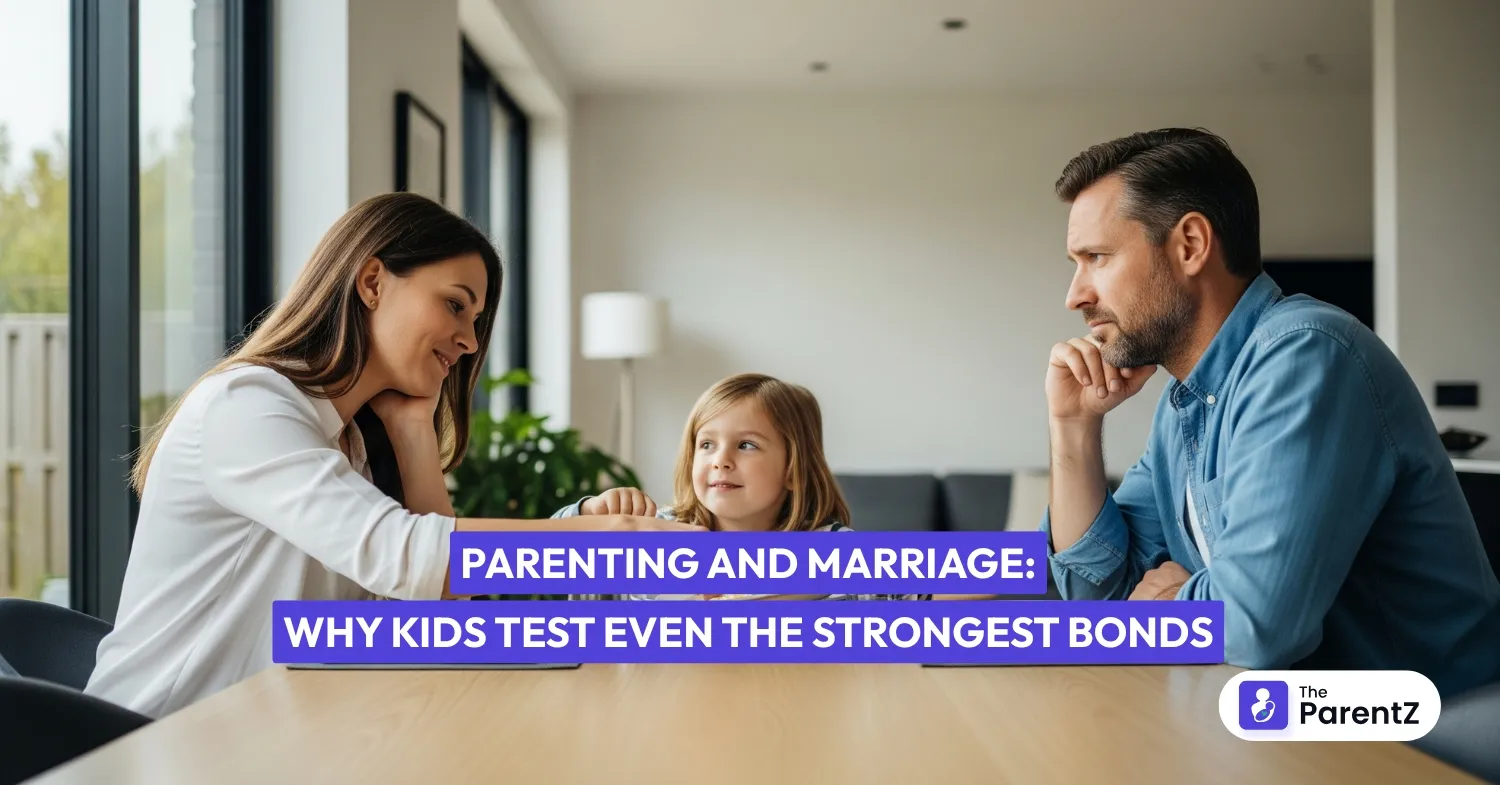It’s funny, isn’t it? You picture raising a family with your partner and imagine the joy, the laughter, the play, the sense of building something together. And all of that is real. But what no one tells you is how messy it can get. Not just the mess of toys scattered around the house, but the mess inside, the stress, the arguments, the doubts about each other, and the invisible strain on your relationship.
Children don’t break marriages. But they do test them in ways nothing else ever does. Even the strongest, most loving couples find themselves asking quietly, “When did we stop being us?”
Life Before Kids vs. Life After Kids
Before kids, life feels flexible. You argue about where to eat dinner, how to arrange a holiday, or which show to watch. You can stay up late, sleep in, and have long conversations without interruption. Your partner is your teammate, your lover, your go‑to person, and your life revolves mostly around each other.
Then the kids arrive. Suddenly, you’re not just “partners.” You’re also “parents.” The balance tips dramatically. Sleep disappears, patience wears thin, and suddenly the arguments aren’t about movies but about baby bottles, housework, money, and who got less sleep last night.
The truth is, it’s not just about the child. It’s about how the weight of responsibility shifts gears in the relationship. You both change, and sometimes you don’t realize how deeply, until one day you’re arguing about something small that somehow feels enormous.
Why Kids Test Even the Strongest Bonds
New Roles, New Expectations
When a child is born, so are two new versions of you: the mother you’ve never been before, the father you’ve never been before. You’re both learning as you go. The problem is that while you’re still figuring yourself out, you’re also trying to figure each other out in these new roles. Suddenly, the person you thought you knew feels unfamiliar. She’s more protective, more tired, maybe more critical. He’s more distracted, more anxious, maybe more distant. It’s not because love has disappeared; it’s because both of you are carrying more than you ever have before.
The Invisible Load
One of the hardest parts of parenting is the invisible work, such as comforting at 3 a.m., the mental checklist of vaccinations, the laundry, the organizing, and the constant thought of “What does my child need next?” Sometimes one partner feels the other doesn’t notice their load. Resentment creeps in. It’s not about dishes or diapers; it’s about whether one feels seen.
Different Parenting Styles
Even in strong relationships, kids highlight differences you didn’t know mattered. Maybe one parent is stricter while the other is more relaxed. Maybe one focuses on academics while the other values fun. These differences don’t usually appear when you’re just sharing life as adults, but when a child is involved, suddenly they matter, and sparks fly.
Constant Lack of Time for Each Other
This one’s huge. When kids are young, alone time becomes rare. Conversations get cut short because of cries, laughter, or messes to clean up. Intimacy often takes a backseat, not because love has gone cold, but because exhaustion runs the show. Marriage can begin to feel like co‑management instead of companionship.
Feeling Like You’re Failing Somewhere
This might be the most painful part. Sometimes you feel like you can’t give either role your best. You worry you’re falling short as a parent, falling short as a partner, and fully succeeding in both seems impossible. That feeling alone can pull at the heart of a relationship because instead of being teammates, you both secretly feel like you’re drowning.
The Unspoken Part: Parents Are Human
Marriage after kids isn’t difficult because partners don’t care; it’s difficult because you care so much in two directions at once. Your love expands, but so does your exhaustion. And in the tug‑of‑war, it’s easy to mistake frustration for failing love.
Parents are still humans. They still have personal needs, emotional needs, fears, and triggers. The problem is, parenthood often robs couples of space to be “just human” with each other. And so hurts pile up, unspoken.
This doesn’t mean couples are doomed or that kids ruin marriages. It means the bond is being asked to stretch, and like any strong rope being tested, the fibers feel the strain. The test doesn’t break the rope if both sides hold on.
Finding Your Way Through the Tests
The key isn’t avoiding stress because stress comes with parenting. It’s in remembering that you and your partner are not enemies but allies. Yes, the arguments will come. Yes, resentment will knock on the door. But so can small moments of reconnection like choosing to acknowledge the effort your partner puts in, even if it looks different from yours. Or pausing before the heat of an argument to realize the frustration is not really about dishes, but about needing to be seen.
Small reminders matter:
- You’re still partners, not just parents.
- It’s okay to get it wrong sometimes.
- Love doesn’t vanish under stress; it waits for you to notice it again.
Conclusion
Children test marriages not because couples are weak, but because the responsibility of raising another life reshapes everything. It changes roles, expectations, intimacy, and how each partner feels seen (or unseen). Even the strongest bonds will feel stretched at times.
But being tested is not the same as being broken. If anything, these tests can deepen bonds if couples recognize the stress for what it is, not proof of failure, but proof of love being stretched to carry more weight than ever before.





Be the first one to comment on this story.